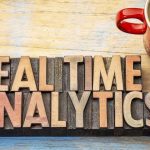Big data and analytics are an integral part of social media marketing. Ever since millions of people started using networks, it became apparent to marketers that data is a valuable resource for advertising. On no network has this been more prevalent than Facebook, the network with the most users and the highest ad revenue in the world. Hubspot pinpoints 2009 as the year … [Read more...] about The Changing Face of Social Media Marketing through Big Data
Big Data
Learn everything you need to know about big data. Find out how companies are using this revolutionary technology and what it means for your business strategy.
5 Things that Keep Your CTO Up at Night
It is not easy being a CTO, especially considering all the threats from hackers coming from every possible direction, trying to get their hands on that priceless data. Perhaps what is most nerve-racking is that even one security breach can turn a respectable company into a laughingstock. Here are some of the reasons CTOs around the country are having trouble sleeping at … [Read more...] about 5 Things that Keep Your CTO Up at Night
Preparing Your Dataset for Machine Learning: 8 Basic Techniques That Make Your Data Better
There's a good story about bad data told by Martin Goodson, a data science consultant. A healthcare project was aimed to cut costs in the treatment of patients with pneumonia. It employed machine learning (ML) to automatically sort through patient records to decide who has the lowest death risk and should take antibiotics at home and who's at high risk of death from pneumonia … [Read more...] about Preparing Your Dataset for Machine Learning: 8 Basic Techniques That Make Your Data Better
Are Data Lakes Fake News?
The problem with the data lake Are data lakes fake news? The quick answer is yes and in this post, I will show you why. The biggest problem I have with data lakes is that the term has been overloaded by vendors and analysts with meanings. Sometimes it seems that anything that does not fit into the traditional data warehouse architecture falls under the catch-all phrase of the … [Read more...] about Are Data Lakes Fake News?
Is Real-Time Analytics A Money Pit?
Certainly, it is important to have analytics available in the timeframe needed for making decisions. For many years, it was too difficult and expensive to execute analytics anywhere near real-time and so everything was done using infrequent batch processes. As processing power has increased exponentially and costs have dropped to unprecedented levels, it is feasible to perform … [Read more...] about Is Real-Time Analytics A Money Pit?
What is big data?
Big data is a term that refers to the massive amount of digital data created and shared every day. Big data can transform how we live, work, and communicate. It can be used to improve everything from public health and urban planning to business and marketing.
Big data is also changing the way we think about privacy and security. The volume, velocity, and variety of big data present challenges and opportunities for organizations and individuals. Regardless, big data is here to stay, and its impact will only continue to grow in the years to come.
What is big data analytics?
Big data analytics is the process of turning large, complex data sets into actionable insights. Businesses use various analytical tools and techniques, including machine learning and statistical analysis, to do this.
Big data analytics can be used to improve decision-making in areas like marketing, operations, and customer service. It can also be used to identify new business opportunities and optimize existing processes. With the help of big data analysis, businesses can gain a competitive edge by using their data better.
Want to learn more about big data? Datafloq has courses available. Contact us to get started.
When was big data introduced?
The term big data was coined in the 1990s, with some giving credit to John Mashey for popularizing the term. However, the concept of big data has been around for much longer.
Where does big data come from?
In the early days of computing, scientists and businesses began to realize that the amount of data being generated was increasing exponentially. As a result, they began to develop new methods for storing and processing data.
Over time, these methods have become increasingly sophisticated and have played a key role in enabling businesses to make sense of vast amounts of information. Today, big data is used in various industries, from retail to healthcare, and its importance is only likely to grow in the years to come.
What are examples of big data?
One of the most common examples of big data is social media data. With over 2 billion active users, Facebook generates a huge amount of data every day. This includes information on user interactions, posts, and even location data. Analyzing this data can help companies better understand their customers and target their marketing efforts.
Another example of big data is GPS signals. These signals are constantly being generated by devices like cell phones and fitness trackers. When combined with other data sets, GPS signals can be used to provide insights into everything from traffic patterns to human behavior. Finally, weather patterns are another type of big data set. By tracking these patterns over time, scientists can better understand the impact of climate change and develop strategies for mitigating its effects.
How do companies use big data?
Companies use big data in marketing, product development, and customer service. By analyzing large data sets, businesses can identify patterns and trends that would be otherwise difficult to spot. For example, a company might use big data to track customer behavior patterns to improve its marketing efforts.
Alternatively, a company might use big data to improve its products by identifying areas where customers are most likely to experience problems. For instance, big data can be used to improve customer service by finding pain points in the customer journey. Ultimately, big data provides companies with a valuable tool for gaining insights into their business operations.






